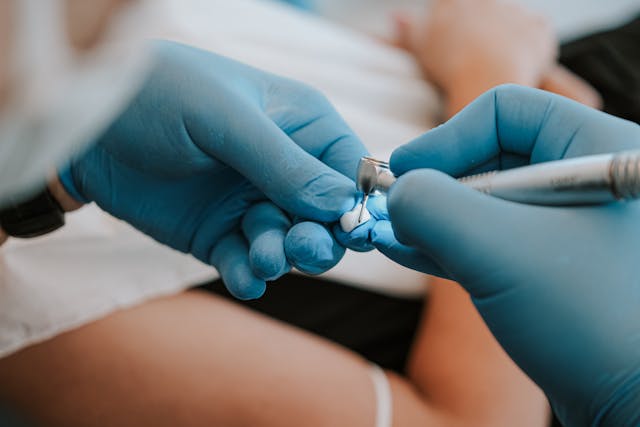Pediatric neurosurgery is a medical field that deals with the diagnosis and treatment of diseases related to the brain, spinal cord, nervous system, and skull in children from birth to adolescence. The nervous system of children differs from that of adults; since growth and development processes continue, pediatric neurosurgery requires a special approach to this dynamic process. Since neurological problems in children can have significant effects on both physical and mental development, surgical interventions in this area require great care and expertise.
In this article written by brain surgeon Prof. Dr. Özgür Taşkapılıoğlu, you can find the scope of pediatric neurosurgery, which diseases it addresses, treatment methods, and points to be considered for families.
What is Pediatric Neurosurgery?
Pediatric neurosurgery is a specialty that focuses on the treatment of surgical diseases related to the nervous system in children. Since the anatomy and physiology of children are different from adults, neurosurgeons working in this field make treatment plans by considering the growth and development of children.
This field covers a wide range from brain tumors to spinal cord diseases, from congenital anomalies to traumatic injuries. Pediatric neurosurgery aims to improve the quality of life and prevent potential complications so that children can grow and develop healthily.

Diseases in the Field of Pediatric Neurosurgery
Pediatric neurosurgery covers many different neurological diseases. These include:
1. Congenital Anomalies
• Spina Bifida: A congenital opening occurs in the spinal cord as a result of the spine not closing.
• Arnold-Chiari Malformation: A condition caused by the back of the brain being pushed into the spinal canal.
• Craniosynostosis: Skull shape disorders that occur with the early fusion of the skull bones of infants.
2. Brain and Spinal Cord Tumors
Brain tumors in children are one of the most common types of cancer. Tumors such as medulloblastoma, ependymoma, and glioma are among the important study areas of pediatric neurosurgery.
3. Hydrocephalus
It is the accumulation of fluid in the brain ventricles as a result of the disruption of the circulation of cerebrospinal fluid (CSF). If left untreated, it can lead to brain damage by increasing intracranial pressure.
4. Epilepsy Surgery
Surgical methods in drug-resistant epilepsy cases can help children get rid of seizures and improve their quality of life.
5. Traumatic Injuries
Head traumas, spinal cord injuries, and other traumatic damage to the nervous system.
6. Brain Hemorrhages
Bleeding during or after birth is common, especially in premature babies.
What are the Diagnostic and Treatment Methods Used in Pediatric Neurosurgery?
Accurate diagnosis and effective treatment methods are vital in pediatric neurosurgery.
Diagnostic Methods
1. Neurological Examination: The child's motor, sensory, and cognitive functions are evaluated.
2. Imaging Techniques:
• MRI (Magnetic Resonance Imaging): Used to examine the brain and spinal cord structure in detail.
• CT (Computed Tomography): Preferred for bone structures and bleeding.
• Ultrasonography: Especially used in newborns.
3. Cerebrospinal Fluid Analysis: Used to evaluate conditions such as hydrocephalus or infection.
Treatment Methods
Pediatric neurosurgery offers a wide range of treatments from minimally invasive methods to complex surgical procedures:
1. Surgical Interventions
Shunt Placement: Used to drain cerebrospinal fluid in the treatment of hydrocephalus.
Tumor Resection: Surgical removal of brain and spinal cord tumors.
Craniosynostosis Surgery: Operations to correct skull shape disorders.
2. Minimally Invasive Surgeries
Less traumatic surgeries can be performed with small incisions thanks to advanced technologies.
3. Neuromodulation Techniques
Electrical stimulation is applied to the brain or nervous system in conditions such as epilepsy or muscle spasms.

Things to Consider in Pediatric Neurosurgery Treatment
Growth and Development Factors: The constantly growing structures of children require a dynamic approach in the treatment process.
Psychosocial Support: Neurological diseases can lead to anxiety and social adjustment problems in children. Psychological support and education are of great importance for families.
Long-Term Follow-up: Regular check-ups should be done to prevent complications and monitor the child's development in the post-surgical period.
What are the Innovative Technologies in Pediatric Neurosurgery?
Robotic Surgery: It is used for more precise and safe surgeries.
Intraoperative Imaging: It helps surgeons make correct decisions by providing real-time imaging during surgery.
Gene Therapy and Targeted Therapies: Studies on the genetic-based treatment of neurological diseases continue.
Recommendations for Families
Observation for Early Diagnosis: If you notice an abnormality in your child's movements, posture, or development, consult a specialist without delay.
Doctor Selection: Getting help from a specialist experienced in pediatric neurosurgery positively affects the treatment process.
Importance of Rehabilitation: Physical and mental rehabilitation after surgery plays a key role in improving the child's quality of life.
Pediatric neurosurgery is vital for children to step into a healthy future. Surgical interventions and multidisciplinary approaches made at the right time support children's physical and mental development. If you suspect your child has a neurological problem, it is very important to act in time and consult a specialist doctor. Child Brain and Nerve Surgeon Prof. Dr. Özgür Taşkapılıoğlu, who serves in Bursa, wishes you healthy days.
Make an Appointment Now
+90 530 167 07 40